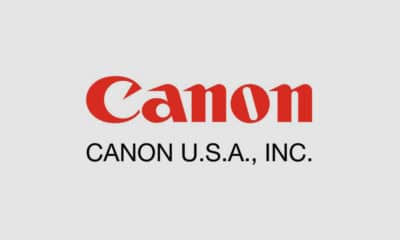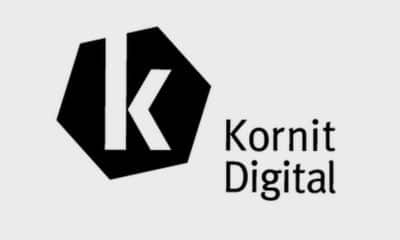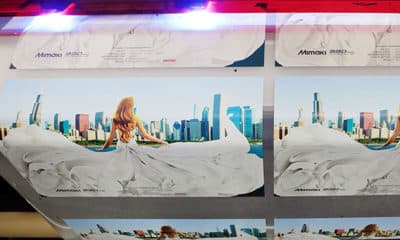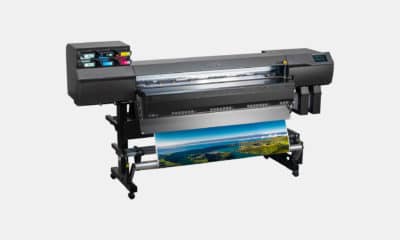Ten years ago, using a computer to operate your print shop became more of a necessity than a luxury. Is running a green operation the next must-have for a successful business? With the increasing focus on environmental sustainability, it might not be long before going green is just as critical to business survival as “going digital” was almost a decade ago.
Phoenix, Arizona-based O’Neil Printing (oneilprint.com) serves as an example of how a company can make strides in reducing its environmental impact by incorporating the idea of sustainability into all parts of its business.
Founded more than 100 years ago as a letter writing company, O’Neil evolved from a typewriter supplier to an offset printer. A few years ago, the business morphed into a full-service print provider, which includes wide-format digital printing. Since 1996, the company has been employee owned and operated.
An aggressive approach to sustainability
O’Neil’s “green” initiatives began before the term green was in vogue. In 1999, the company installed a solvent-recovery system to recycle and reuse solvents from its commercial printing presses, said Bruce VanderHaar, O’Neil’s director of marketing. And for wide-format printing, the company doesn’t use just any solvent ink; instead, it utilizes a corn-based, eco-solvent ink in its Mutoh ValueJet printer.
Operating as an FSC-certified (Forest Stewardship Council, see February ’09, p. 23) print shop for more than three years, O’Neil constantly tests new eco-friendly printable substrates to find new products to offer its customers. Company President Tony Narducci reports that they have not had any significant quality issues with the green materials they already employ.
“We try to maintain an aggressive approach to eco-sustainability and good environmental practices,” VanderHaar says. “That focus is an ongoing part of our decision-making processes.”
Advertisement
Another part of that process has been the company's switch from petroleum-based diesel fuel to biodiesel fuel (i.e. used French fry oil) in its delivery trucks, which went into effect last summer. The decision was mostly an environmental one and hasn’t had a significant cost savings yet. The trucks did not require a retrofit but more maintenance is needed compared with a standard diesel-using vehicle, says Narducci. O’Neil maintains a 250-gallon biodiesel tank at their facility.
“Now we treat everyone to the smell of fried potatoes while driving around town,” he says.
Little things add up
When the company sends a mailing for a client, they check the National Change of Address registry to eliminate any undeliverable addresses from mailing lists to save postage and reduce waste. O’Neil also offers customers various eco-friendly substrates for their projects, including FSC-certified paper, recyclable large-format boards, and biodegradable vinyl banner material. Plus, the company gives customers advice on designing print projects to be environmentally responsible.
In addition to recycling items like soda cans, plastic bottles, batteries, and office paper used by employees, the company also recycles its aluminum printing plates and press solvent as well as paper and corrugated materials. They use recycled paper for all self-promotional materials and collect employees’ old cell phones for donation to charity. Prepress processes, including proofs, are completed digitally to save paper.
The company’s effort to go green—which is publicized readily to potential clients—has drawn in some customers, Narducci says. As concerns for sustainability have grown, more customers are asking about a service provider’s green efforts.
A corporate culture of change
O’Neil’s workforce also seems to appreciate the changes.
Advertisement
On the employee front, O’Neil encourages employees to choose alternative, eco-friendly transportation to and from work. To boost participation, Narducci says all participants receive quarterly gift certificates, and there is a monthly drawing for the coveted “carpoolers” parking space in the company lot. Thirty percent of the company chooses to carpool, drive an alternative-fuel vehicle, bicycle, or ride the bus or Phoenix’s recently launched light rail system.
“They were motivated by the high cost of gas last summer, but the cool thing is that they have stayed with the program even though gas costs have come down,” Narducci says.
“I think it is a fact about O’Neil that many employees are proud of,” VanderHaar adds. “Because we are employee-owned, they see the value of our recycling programs in the bottom line every month.”
All businesses can become more sustainable by making some simple changes, but a good first step is making the decision to change.
“It starts with the idea that sustainability is important enough to be part of every strategic decision,” Narducci says.

 Blue Print1 month ago
Blue Print1 month ago
 Buzz Session1 month ago
Buzz Session1 month ago
 Columns3 days ago
Columns3 days ago
 Beyond Décor: Rachel Nunziata3 weeks ago
Beyond Décor: Rachel Nunziata3 weeks ago
 Press Releases2 months ago
Press Releases2 months ago
 Press Releases1 month ago
Press Releases1 month ago
 Press Releases1 month ago
Press Releases1 month ago
 Press Releases2 months ago
Press Releases2 months ago













